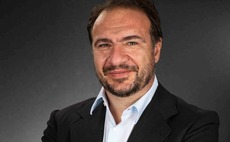
Islamic finance: From Middle East to Far East

Shari’Ah-compliant private equity investing is all about being ethical – so how exactly did one fund end up investing in a Malaysia-based company with ties to a brewery? Alcohol-related companies are, of course, strictly off limits for Islamic investing.
Daud Vicary Abdullah, former partner and director at Deloitte Consulting and the incoming president and CEO of the Kuala Lumpur-headquartered International Center for Education in Islamic Finance (INCEIF), is reluctant to disclose the identities of those involved. Suffice to say, women working at the brewery required a secure destination for their children during the day and a shari'ah-compliant fund loaned the necessary capital to get a childcare center for the off the ground. In this way, the "ethical investment" requirement was met.
"Islamic investing is very clear about things that you can't do, but everything else that is positive is up for grabs," Abdullah says, noting the investment regarded the brewery's staff social and welfare club, and not the brewery itself.
Shari'ah-compliant private equity funds have traditionally been a niche market in Asia, specific to countries such as Malaysia, Indonesia, India and Singapore, although there are hopes that this will change. The number of shari'ah-compliant fund managers is also still limited; analysts suggest that approximately 30% of private equity funds in Malaysia, considered the capital of Islamic finance in Asia, are shari'ah compliant.
Yet the demand for these funds is growing given cash-rich Islamic LPs' interest in diversifying investments across a range of industries and geographies. Minimal progress has been made in creating fund structures to accommodate these investors because of the inordinate effort required to do so.
"I'm pretty sure that fund managers are thinking about creating shari'ah-compliant funds, but the number of hurdles that you need to clear in order to convince Islamic investors to part with their money and invest in Asia is a genuinely difficult process," says Rik Muilwijk, a partner at Malaysia-based Navis Capital, which manages shari'ah-compliant funds alongside conventional funds.
The lay of the land
The global market for Islamic financing is estimated to be worth $1.2 trillion. A growing proportion of that is being allocated to private equity investment because the asset class is seen as a compatible segment for Islamic financers. This is mainly due to the tangible nature of target companies as well as the risk-sharing structure of the deals.
According to a Zawya.com research, shari'ah-compliant private equity represented approximately 5% of total new private equity funds raised in 2005. That grew to 50% by 2008, an increase credited to the amount of capital secured in Middle Eastern sovereign wealth funds alone. In the Gulf region, the non-government private equity industry is worth approximately $20 billion, Zawya Dow Jones reported in February. Approximately one-fifth of that is branded as shari'ah-compliant funding.
While the Middle East is still the major recipient of Islamic capital investments, analysts say that the demand for opportunities exceeds supply. Given the volatility of some still-emerging Middle Eastern economies, investors have been keen to expand their target geographies to more mature markets that present opportunities for greater returns.
Earning these returns in Asia has been a slow process due to the nascent state of the Islamic private equity sector. In addition to a scarcity of shari'ah-compliant funds based in the region, the industry is hindered by inexperienced fund managers, lawyers and other management professionals. "I do think that lack of knowledge on Islamic finance has somewhat slowed development of shari'ah-compliant private equity investing," says Muilwijk. "There is only a handful of GPs that have a proven track record in that regard."
In Asia Pacific, some top GPs are cited as Navis Capital, AmBank and Aberdeen Asset Management, with CIMB Asset Management a huge Islamic investor across several disciplines. While industry observers agree that the importance of Islamic private equity is on the rise, there is still a shallow pool of players that can fully accommodate these LPs, and even the foremost funds have taken time to develop.
Navis first gained exposure to the asset class with Navis Asia Fund III and the Navis CIMB Muamalat Fund, its first shari'ah compliant vehicle, which closed in 2003 with commitments of $86 million. The shari'ah fund invested alongside the conventional fund. Four years later, the private equity firm closed a shari'ah-compliant hybrid investment fund that invests in both public and private equities in ASEAN and India. Navis Islamic Investment Fund (Asia) closed at approximately $60 million and caters to Islamic investors with a preference for liquidity of part of their portfolio. According to the fund's managers, the vehicle's innovative fund structure has worked well for the targeted group of investors.
The firm continues to raise shari'ah-compliant parallel funds that invest along-side its main funds. Its most recent shari'ah parallel fund, Navis Asia Fund VI-S closed in 2009 with $30 million in commitments.
As time passes, funds do seem to be experiencing more activity. In July 2009, Capital Advisors Partners Asia launched its Islamic Asia Infrastructure Fund with a target of $312 million target, and has so far secured commitments worth $262 million. Based in Malaysia, and financed by LPs Asian Development Bank, CIMB, Islamic Development Bank and Standard Bank Group, the fund has targeted a wider range of geographies, spanning Indonesia to Bangladesh to Azerbaijan. Last year, SBI Venture Capital launched SBI Islamic Fund (Brunei), which focuses on special situations investing in Southeast Asia.
Within the confines of shari'ah-compliant financing, these funds exhibit the breadth of opportunity available.
"There are still some fundamentals that need to be learned, and funds aren't getting critical mass quickly enough because of a lack of appetite on the part of investors, and part of that is education," Abdullah says. "You'll see a tipping point when funds launch at $100 million-plus, but right now there are too many that are $70-80 million. It's encouraging, but it's a young industry."
Private equity's a natural fit
The affinity that private equity holds for Islamic investors is rooted in a parallel natural between fund structures and shari'ah principles. One of the key pillars of Islamic finance is risk-sharing, where designated partners agree upon the division of profit and loss. Private equity funds are diversified through a pool of investors, which bodes well for shari'ah compliancy.
A second aspect is the focus on tangible assets, and purchasing these with low leverage. According to Lord Edwin Hitti, president of the Arab Chamber of Commerce & Industry based in Hong Kong, anything that is real – movables, or immovables – is a compatible target for Islamic private equity, while "virtual and non-tangible assets tend to keep Islamic financers away."
At the foundation of all Islamic financing are four concepts: mudarabah, a business partnership where everyone outright agrees on a profit structure; musharakah, which prohibits the collection of interest on loans; murabahah, the purchase of an item on a deferred basis; and ijarah, the use of leasing to ultimately purchase an item.
Each of these components relate to the way that shari'ah-compliant funds finance their investments. In practice, these funds aren't very dissimilar from conventional private equity funds, but the nuances are something to navigate.
A major consideration for investors is the areas of business that are prohibited for investments. These are companies related to gambling, pornography, alcohol, pork products and financial institutions. Many of these categories aren't necessarily focuses for traditional private equity investors, but Muilwijk points out that if a fund takes a stake in a hotel whose restaurant serves alcohol, that's a gray area. Sectors including healthcare, infrastructure, education, manufacturing and food and beverage tend to be more popular among Islamic investors.
Yet, using Abdullah's example of the investment in the brewery-linked childcare center, there are tangents of these sectors that can be regarded as acceptable. "It's generally regarded that if revenue from something not shari'ah-compliant only accounts for 5% of you're total revenue, then it's okay," Abdullah says. "Shariah scholars have different levels of tolerance for this. Some are at zero tolerance, while some will allow 5% revenue from a haram source. In reality, it's preferred that alcohol isn't involved, but there is some latitude to allow for it."
The judge on these investments is a board of shari'ah scholars employed by funds, essentially acting as independent auditors to ensure that a fund complies with its mandate.
Among the factors examined is debt structure. Given that risk mitigation is a key tenet of Islamic finance, the less debt taken on to purchase an asset the better. Some more conservative shari'ah-compliant funds avoid taking on more than one-third of the full value of a company in debt, but others, including those largely seen in Southeast Asia, assume as much as 50%, according to Hitti.
"The idea is to remain within ‘reasonable' guidelines. People mistake this as something exotic or exceptional, but it's basic practice," he says. "Islamic investors are not immune to risk. If you invest in seasonal agriculture or mining, there are elements of risk related to the weather or commodities. But you eliminate risk in terms of speculation and leverage."
Branching out
With Islamic private equity on the up, there are ways to broaden the sector's footprint in Asia. One popular solution is through education, with institutions such as INCEIF, launched by Malaysia's central bank in 2006, offering business degrees and coursework to tackle the problem of human capital.
Another comes in the form of regional GPs positioning themselves as more shari'ah-compliant. This is achieved by implementing financing structures that use little leverage and payment options that don't include interest, as well as investing in assets within the confines of shari'ah boundaries. The ability to exhibit that past investments have been ethical ones, both in terms of the asset's industry and its management and employee structure, will also go far to attract Islamic capital, despite a fund not having been shari'ah-compliant by name.
Abdullah points out that, while only 0.7% of global assets are backed by shari'ah-compliant funds, ethical assets in the US alone are worth $3 trillion.
Industry experts say that in the past Islamic financers who weren't able to find shari'ah-compliant funds operating in a particular geography sometimes opted to invest in conventional funds, as long as the objectives were parallel to their own. Muilwijk notes that Navis also exhibits this by making investments from its conventional funds that parallel its shari'ah-compliant vehicles.
But if more funds do not crop up, the concern is that Islamic investors may negate GPs as middlemen. "Within Islamic finance there is less distinction between equity financing and risk-based or collateral lending," says Darawati Hussain, head of CIMB Private Equity & Venture Capital. "Therefore I anticipate that in future Islamic finance institutions will be active in the field of venture funding, supporting the Ummah [Muslim population wherever they are located] and perhaps not in independent stand-alone GPs which are only return-orientated."
While attracting global Islamic investors is a key component to boosting Islamic private equity in Asia Pacific, attracting non-Islamic investors would achieve the same goal. This is where rebranding shari'ah-compliant private equity as ethical-investing private equity – with real results – comes into play.
Shari'ah-compliant funds were said to have performed well during the global financial crisis because of their risk-averse nature. Not only have deals involved limited leverage, but investments into dairy companies and cattle farms in Australia and Indonesian timber plantations yielded comparatively strong returns.
"There is momentum and we're seeing a growing pie for this sort of investment," Abdullah says. "There needs to be better branding and marketing of the products – there's too much saying that ‘this is Islamic finance.' The people who know it's compliant aren't so bothered. Maybe the non-Muslims just want to know it's ethical investments."
Latest News
Asian GPs slow implementation of ESG policies - survey
Asia-based private equity firms are assigning more dedicated resources to environment, social, and governance (ESG) programmes, but policy changes have slowed in the past 12 months, in part due to concerns raised internally and by LPs, according to a...
Singapore fintech start-up LXA gets $10m seed round
New Enterprise Associates (NEA) has led a USD 10m seed round for Singapore’s LXA, a financial technology start-up launched by a former Asia senior executive at The Blackstone Group.
India's InCred announces $60m round, claims unicorn status
Indian non-bank lender InCred Financial Services said it has received INR 5bn (USD 60m) at a valuation of at least USD 1bn from unnamed investors including “a global private equity fund.”
Insight leads $50m round for Australia's Roller
Insight Partners has led a USD 50m round for Australia’s Roller, a venue management software provider specializing in family fun parks.







